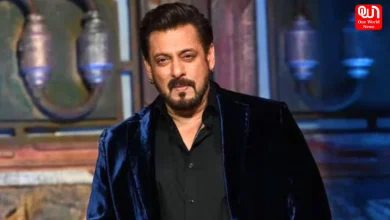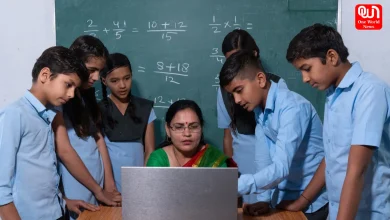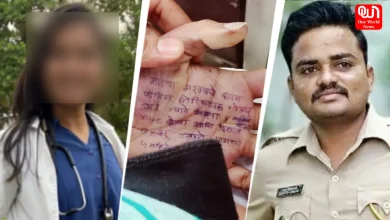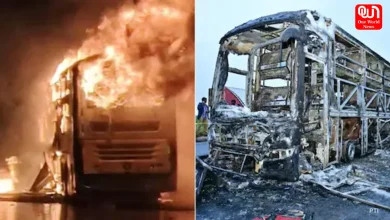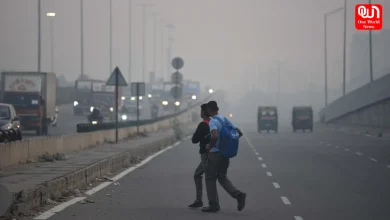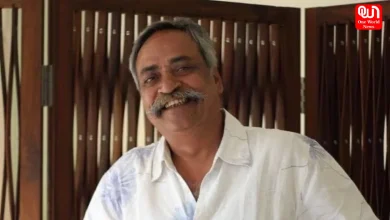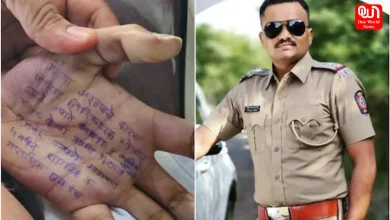BBC On I-T Radar: 60 hours of ‘survey’, Outrage in Global Media

BBC On I-T Radar: “The US supports the value of ‘free press’ around the world” says US Spokesperson Ned Price
BBC On I-T Radar: The BBC offices at Delhi and Mumbai are under survey for the third day. It’s been more than 60 hours since the IT officials raided BBC offices on 14 February around 11 am to conduct an audit of the accounts.
“The survey teams are seeking answers on financial transactions, the company structure and other details about the news organisation, and are copying data from electronic gadgets as part of their task of collecting the evidence,” reported PTI
The taxmen gave a document to the BBC editors. “They have permission to survey for three days. All BBC workers have been told to work from home until further notice.” a source revealed to leading daily.
Following the broadcast of two-part documentary “India: The Modi Question” on Prime Minister Narendra Modi and the 2002 Gujarat riots, officials collected papers from the news organisation and financial data from its staff members.
Employees left the office without phones
As the investigation entered its third day, 10 BBC employees had not left their offices since the Taxmen began a “survey” at their Indian offices.
Employees on the morning shift were asked to leave after having their phones seized, laptops scanned and the computer inspected.
British government sources “closely monitor” claims of tax surveys carried out at the BBC’s Indian offices. The British broadcaster was instructed to be prepared and cooperate with the tax officials amid the ongoing survey.
According to insiders, the BBC has instructed its top officials in India to cooperate with the investigation and be ready for any I-T officials’ inquiries in a list of “instructions” to its staff in India.
The US supports ‘free press’
In response to Pakistani journalist Jahanzaib Ali’s question on ‘raiding’, the BBC office’s spokesperson for the US State Department stated: “The US supports the value of ‘free press’ around the world”.
“We are aware of the search at the BBC offices in Delhi…We continue to highlight the importance of freedom of expression and religion or belief. As human rights, that contributes to the strengthening of democracy here in this country, in India and in our fellow democracies around the world,” said Spokesperson Ned Price.
United States spox @StateDeptSpox response on @ImranKhanPTI Imran Khan u-turn. Also talked about security cooperation with Pakistan and Indian govt raids on @BBCUrdu offices #ImranKhan #UturnKhan #bbcindia #BBCGetsRaided #BBC @ForeignOfficePk @indyurdu @ARYNEWSOFFICIAL… pic.twitter.com/nu4Lqqvq6I
— Jahanzaib Ali (@JazzyARY) February 16, 2023
Outrage in Global Media
The Times London has condemned the income tax authorities’ “surveys” of the BBC offices in Delhi and Mumbai. Several other media outlets have brought attention to the documentary India: The Modi Question.
The Times opined: “With an assault on the corporation, Narendra Modi’s India strays yet further from democratic norms”.
The Guardian wrote, “There has been an increasingly pressured environment for the media since Modi came to power in 2014. Journalists and news organisations that have published work critical of the BJP government have faced harassment, raids, criminal cases and tax investigations. India has dropped to 150 out of 180 on the World Press Freedom Index.
The New York Times wrote that “many saw signs that the broadcaster would face some sort of retaliatory action” “in witnessing just how far the government had gone in its efforts to block the documentary’s dissemination since its release late last month, and in observing attacks on the BBC on nightly news shows”.
The Washington Post highlighted the “baseless claim” circulated by pro-government outlets, including Republic TV, “that the British broadcaster is an agent of the Chinese Communist Party. (In China, the BBC is repeatedly criticized by government officials, and security forces occasionally assault its journalists.).”
Following the controversial documentary, the Supreme Court rejected a petition asking for a complete ban on the BBC in India last week. The court referred to the petition as “entirely misconceived” and “totally meritless.”
In April, a new batch of petitions contesting the government’s decision to disable connections to the documentary on social media platforms will be heard. The government issued orders to remove numerous YouTube videos and Twitter posts that contained links to the documentary on January 21.
Liked this post?
Register at One World News to never miss out on videos, celeb interviews, and best reads.

